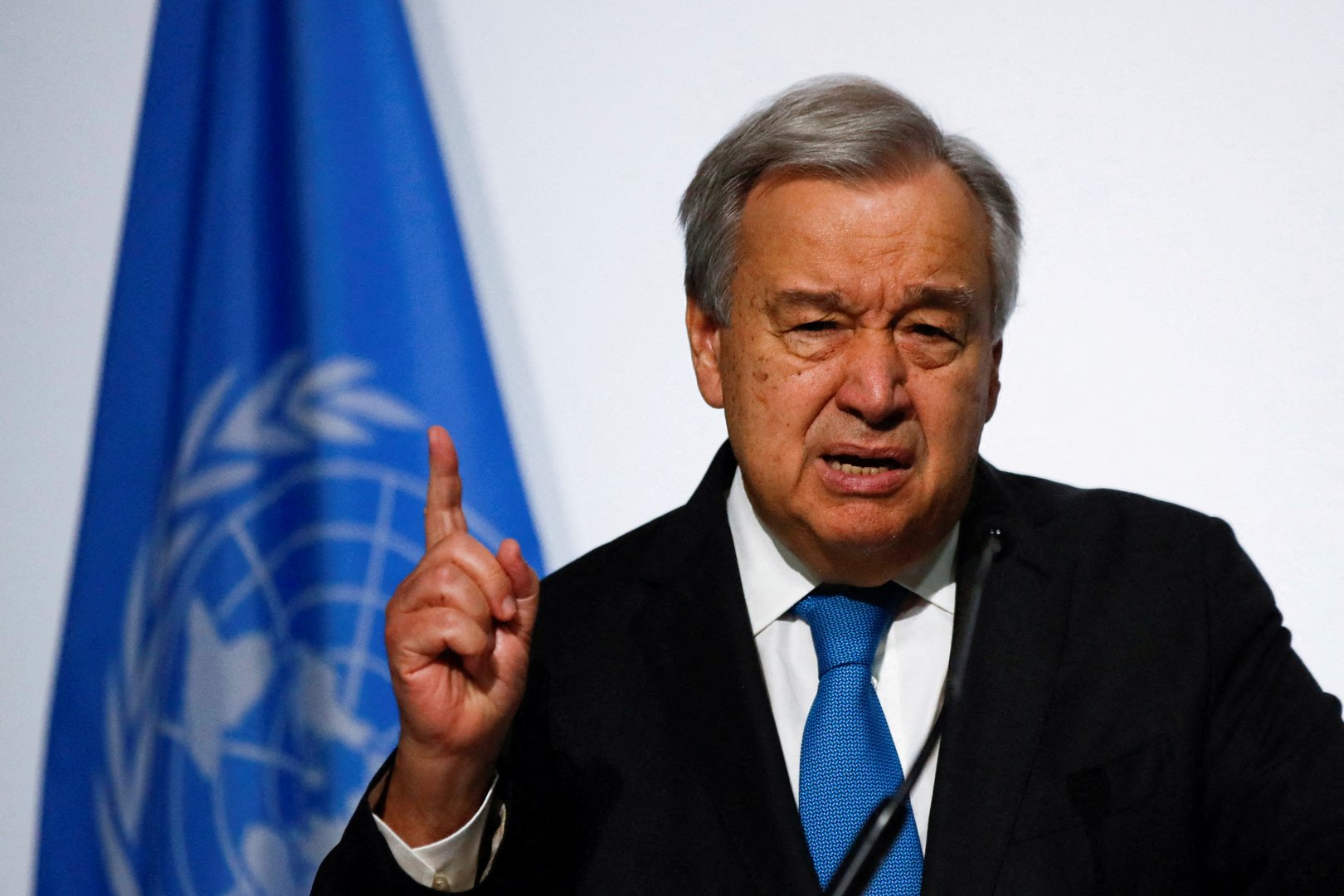There has probably never been a more negative report on the UN Secretary-General’s Good Offices Mission than the one released a few days ago. This may have been the draft report, but no matter what changes are made to it in the coming weeks, it is extremely unlikely its bleak outlook about the prospect of progress will be altered. A sense of resignation marks the words of Antonio Guterres, who appears to have all but given up any hope, just before his new special envoy is set to arrive in Cyprus to try to kickstart negotiations.
For Guterres there was nothing positive. “As the divide grows wider year after year, there is an increasing realisation on both sides that the prospects for a solution that everyone can accept are gradually fading,” he wrote, while listing all the factors that made any talk of progress meaningless. He said the “continued divisive rhetoric is regrettable,” as was the failure, at the political level, to provide support to trust-building. He also mentioned the “obstacles to greater interaction between Greek Cypriots and Turkish Cypriots” that “continue to limit the daily intercommunal exchanges and prevent the interdependence that would greatly foster the conditions for sustainable peace.”
The technical committees set up to foster cooperation were also floundering. The humanitarian affairs committee had not met for a year, the committee on education remained dormant, while there were delays in the implementation of the proposed activities of other committees that needed to be resolved. The two sides were not providing the technical committees “with the necessary support and leeway to preserve their ability to function, deliver results and address matters with island-wide implications.” Another negative was the failure to agree on the opening of new crossing points, with the sides submitting “mutually exclusive proposals”.
Even the mutual understanding on Pyla, which was reached after Turkish Cypriot police attacked Unficyp soldiers in the buffer zone, continued to face challenges, he noted. In plain language, it has not been implemented. There had been an encroachment into the buffer zone by both military and civilian projects which prompted actions by the two sides that reinforced mistrust. At least, this was used as justification for recommending the renewal of the Unficyp mandate for another year.
For how much longer the UNSG would do so nobody can predict. Guterres pointed out that on March 4, Unficyp will mark 60 years of continuous presence in Cyprus, “a milestone that is a sobering reminder of just how long the people of Cyprus have been waiting for a resolution.” Was this also a veiled warning that Unficyp will not be around forever to de-escalate tensions in the buffer zone and prevent conflict? When there is no prospect of a political settlement of a conflict there is no justification for the continued presence of a UN peacekeeping force, and this could have been what Guterres was hinting at with his reference to the 60th anniversary.
While Unficyp has performed its duties admirably, the UN’s efforts to secure a settlement have failed spectacularly and are unlikely to go on for much longer. In fact, there has been no proper initiative since Nicos Anastasiades walked out of the Crans Montana talks six-and-half years ago. There were a couple of meetings under the UNSG that led nowhere and the doomed proximity talks by Jane Holl Lute, while Guterres has kept well clear of the Cyprus problem in this time. For almost two years he had ignored the calls of the Cyprus government for the appointment of an envoy, believing, quite rightly, this would be a futile exercise in the prevailing conditions. This belief pervades his Good Offices Mission draft report, although he has given in and appointed an envoy, whose chances of success are minimal, for all the reasons cited in his report.
Most Greek Cypriot parties avoided commenting on the draft report. Those that issued statements expressed disappointment about its ‘lukewarm’ tone and slammed the UNSG’s failure to mention the occupation and his policy of keeping “equal distances” from the two sides. They also strongly objected to his suggestion that there should be cooperation on the exploitation of hydrocarbons.
As usual, they missed the point. Here was the UNSG telling us that the UN holds very little hope of any agreement being reached between the two sides and implying that the organisation is very close to giving up on the Cyprus problem. If his envoy Maria Holguin Cuellar, whose appointment was officially announced on Friday evening, fails in her mission, that will most probably signal the end of UN involvement in the Cyprus problem, and the UNSG’s next report could propose the withdrawal of Unficyp after 60 years’ presence.
A presence that failed to produce a settlement, through no fault of the UN but because, in the final analysis, the majorities on the two sides are very comfortable with partition. The UNSG’s report may not have said this openly, but all the points he made, led to this conclusion.







Click here to change your cookie preferences